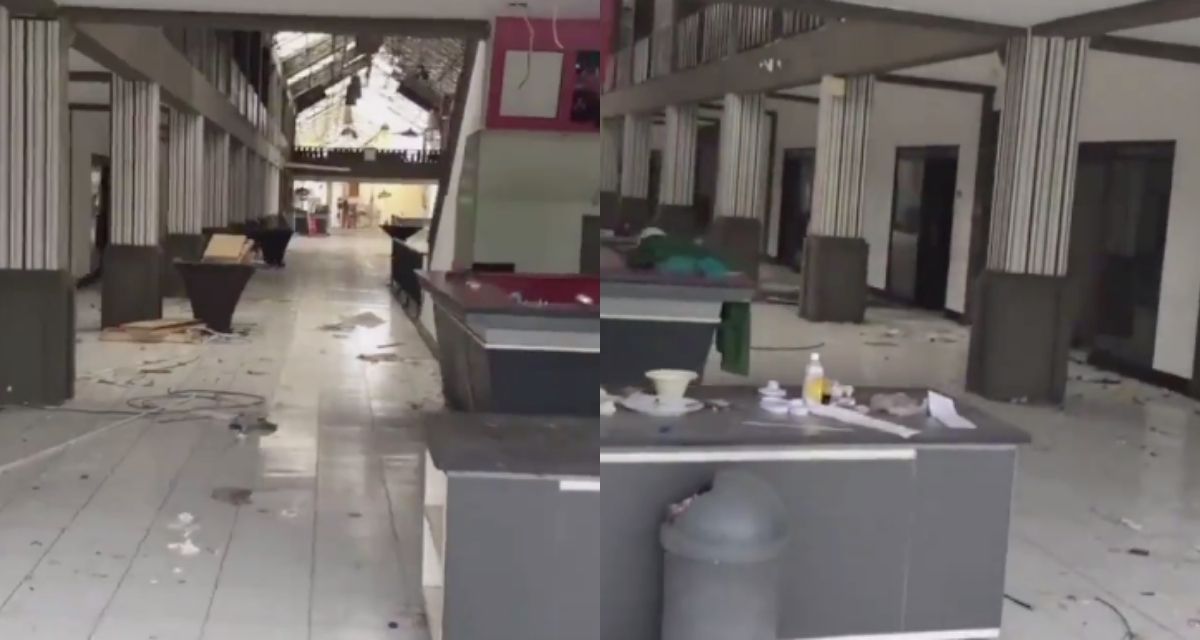The halt in global travel amid the pandemic has impacted tourist destinations across the world, yet one recent report from an Australian news channel might make you think that Bali is on the verge of total collapse and might not bounce back from the hard times.
A Current Affair (ACA), a program from Australia’s Channel 9, published a report on the COVID-19 situation in Bali on Nov. 10 on its social media accounts, questioning whether Bali can survive without tourists. The five-minute clip showed footage of closed shops and empty streets in Kuta, as well as scenes from an empty and trashed hotel in Legian.
Bali is now on life support after COVID-19 left it will no tourists, trashed hotels and empty streets. Can it bounce back? #9ACA pic.twitter.com/VOJX84l7W0
— A Current Affair (@ACurrentAffair9) November 10, 2020
It’s true enough to say that these are challenging times for the province, where more than half of its economy is dominated by tourism. Bali’s unemployment rate jumped to 5.63 percent recently, and it is the hardest-hit region in Indonesia amid the pandemic. However, ACA’s report crucially left out those impacted the most by these hardships — the Balinese people themselves — and did not include various efforts rolled out by the government, communities and civil society organizations to revive the economy.
Read Also — Pay your tuition in coconuts: Bali tourism school gives struggling students nutty alternative
Unsurprisingly, ACA’s report did not sit well with many people, such as this user on Twitter:
#A9CA You share a news about Bali without interviewing any Balinese? And you close your eyes to the positive things people do there during the pandemic? Check out Kopernik Project! Check out Togetherness Project! Try to make your news more fair!
— Mi Nombre Rany (@minombrerany) November 11, 2020
Bali Hotels Association (BHA), whose members include general managers of over 100 four-star and five-star hotels and resorts in Bali, issued a statement today in response to ACA’s report, highlighting how the news piece implied “that all hotels are like this in Bali and that the island is worn and torn.”
“[It is] far from the truth. This type of misleading news has the potential to create a negative image towards the destination,” the statement said.
The association also said it has gathered information on the hotel that was shown by ACA, noting that the accommodation — which is not a member of BHA — was closed due to a change in ownership and is undergoing renovations, with reopening scheduled for next year. In the statement, BHA also noted that tourism-related businesses and the Indonesian government have been working to ensure safe travel and holiday amid the pandemic.
Read Also – Indonesia launches program to improve hygiene at Bali’s tourist sites amid pandemic
Last year, Australian travelers made up the highest number of foreign tourists visiting Bali, with one data set showing about 1.23 million Australians arriving through Ngurah Rai International Airport in 2019. Sure, our neighbors from the land down under have contributed immensely to Bali’s economy over the years, but foreign tourists are merely one part of Bali’s story during the pandemic.
Just yesterday, crowds made up mostly of Indonesians were sighted on Bali’s beaches. There’s that five-day long weekend last month, when thousands of domestic tourists visited the island and brought with them some familiar scenes of crowds and traffic jams in Bali’s top tourist attractions. (We’re concerned about how these could worsen the public health crisis, but these very recent instances should be more than enough to show the other side of those empty streets).
Bali’s deeply-battered tourism industry is breaking our hearts, too, but we’re also inspired by the resilience among Balinese people, such as those who returned to their traditional farming roots to survive the pandemic.
“After eight months of the pandemic, Bali is not staying silent or giving up,” Gus Dark, a Balinese illustrator, told Coconuts.
“Bali that is alive and adjusting with the situation cannot be seen from reports on Kuta and tourist attractions […] Right now, Bali is shaping itself into something better. What doesn’t kill you will make you stronger. Entrepreneurship and modern farming will be an answer to Bali’s future.”





Reader Interactions